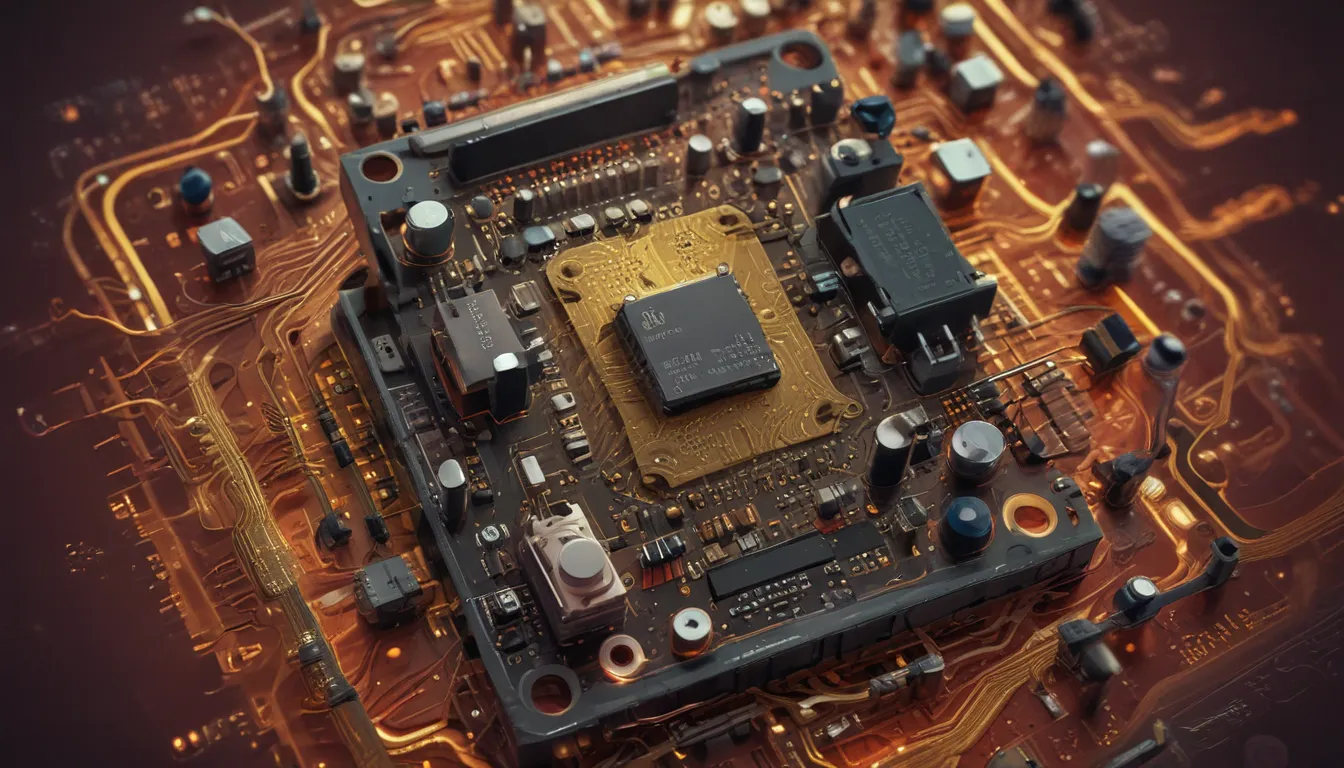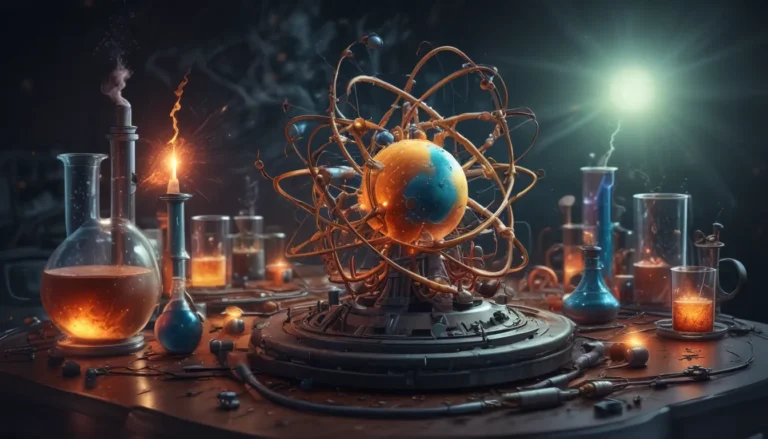A Note About Images: The images used in our articles are for illustration purposes only and may not exactly match the content. They are meant to engage readers, but the text should be relied upon for accurate information.
In the realm of electronics, the transistor stands tall as a pivotal invention that has shaped our modern world. From revolutionizing technology to empowering everyday devices, transistors play a fundamental role in our daily lives. In this article, we will embark on a journey into the captivating world of transistors and uncover nine mesmerizing facts that shed light on their profound impact on technology. Whether you are an electronics enthusiast or simply curious about the inner workings of our digital companions, prepare to be amazed by the marvels of transistors!
Key Takeaways:
- Transistors, smaller than a grain of rice, fuel the digital age and enable wireless communication.
- Found in every household device, transistors amplify signals, enable memory storage, and power digital logic circuits.
The Transistor Revolutionized Electronics
At the core of modern electronic devices lies the humble transistor, a technological marvel that revolutionized the world of electronics. By replacing bulky and inefficient vacuum tubes, transistors paved the way for the digital age, bringing about unprecedented miniaturization and efficiency in various electronic applications.
Transistors Are Smaller Than a Grain of Rice
The remarkable compactness of transistors is truly astonishing. Despite their essential role in powering our technological landscape, transistors can be smaller than a grain of rice. This minute size not only enables the production of sleek and powerful electronic devices but also showcases the incredible progress of modern engineering.
Transistors Amplify and Switch Electrical Signals
A defining feature of transistors is their ability to amplify and switch electrical signals with precision. Whether enhancing weak signals to make them stronger or acting as switches to control the flow of electricity, transistors are indispensable in a wide array of electronic applications, showcasing their versatility and utility.
Transistors Can Be Made from Different Materials
The diversity of materials used to create transistors is a testament to their adaptability. From silicon to germanium and gallium arsenide, each material offers unique properties that cater to specific applications and performance requirements, highlighting the flexibility and customization options available in transistor design.
Transistors Make Memory Storage Possible
Memory storage devices such as RAM and ROM owe their functionality to the innovative use of transistors. By leveraging the electrical properties of transistors, these storage mechanisms facilitate swift and reliable data access, underscoring the crucial role of transistors in modern data processing and retrieval systems.
Transistors Are at the Heart of Digital Logic Circuits
Digital logic circuits, the building blocks of digital electronics, heavily rely on transistors for their operation. By enabling the manipulation and processing of binary information, transistors empower intricate computations and operations, laying the groundwork for the sophisticated digital systems we rely on today.
Transistors Enable Wireless Communication
The seamless connectivity we enjoy in wireless communication technologies is made possible by the prowess of transistors. From radios to smartphones and Wi-Fi devices, transistors play a vital role in amplifying and modulating radio frequency signals, facilitating efficient and long-range wireless communication that keeps us connected.
Transistors Have Revolutionized the Music Industry
The transformative impact of transistors extends to the realm of music, where they have ushered in a new era of innovation and creativity. From portable music players to electric guitars and synthesizers, transistors have empowered musicians to explore new sounds and redefine music production and performance, shaping the evolution of the music industry.
Transistors Are Found in Every Household
Unbeknownst to many, transistors are the unsung heroes hidden in our everyday household devices. From televisions to refrigerators, from washing machines to alarm clocks, transistors power a myriad of appliances that enhance our daily lives, underscoring their ubiquitous presence and indispensable role in modern living.
Conclusion
In the vast landscape of electronics, transistors shine as beacons of innovation and progress, propelling us into a future defined by technological prowess and connectivity. By unraveling the enigmatic world of transistors through nine captivating facts, we have gained a deeper appreciation for their significance in shaping our digital ecosystem. From their invention to their pivotal functions in amplification and switching, transistors epitomize the power of human ingenuity and technological advancement.As we look ahead to a future brimming with possibilities, the importance of transistors in fueling our communication systems and renewable energy technologies cannot be overstated. By delving into the wonders of transistors, we unravel a tapestry of brilliance and innovation that continues to inspire and reshape our world.
FAQs
Q: Who invented the transistor?
A: The transistor was invented by John Bardeen, Walter Brattain, and William Shockley at Bell Laboratories in 1947.
Q: What is the function of a transistor?
A: Transistors act as electronic switches or amplifiers, controlling the flow of electrical current in an electronic circuit.
Q: How small are transistors?
A: With technological advancements, transistors have become incredibly small, with current state-of-the-art transistors measuring just a few nanometers in size.
Q: How do transistors contribute to the miniaturization of electronic devices?
A: Transistors enable the creation of smaller and more efficient electronic components, driving the miniaturization of devices such as smartphones, laptops, and wearable tech.
Q: What are the different types of transistors?
A: Transistors come in various types, including bipolar junction transistors (BJTs), field-effect transistors (FETs), and metal-oxide-semiconductor field-effect transistors (MOSFETs).
Q: How do transistors improve the efficiency of electronic devices?
A: Transistors consume less power, produce less heat, and offer greater efficiency compared to older electronic components, leading to the development of more energy-efficient devices.
Q: Can transistors be used in renewable energy applications?
A: Yes, transistors play a vital role in power electronics for renewable energy systems like solar panels and wind turbines, enabling efficient power conversion and control.
Q: How have transistors impacted the field of communication?
A: Transistors have significantly enhanced communication systems by enabling faster and more reliable transmission of information through devices such as radios, smartphones, and satellite communication.
Q: Are transistors reliable?
A: Yes, transistors are highly reliable and can consistently perform under various operating conditions. However, factors like excessive heat or voltage can affect their lifespan.
Embark on a fascinating journey through the captivating world of transistors and uncover the brilliance behind their invention and application. With each fact unraveling a new layer of wonder and innovation, dive deep into the realm of electronics and witness the transformative power of these remarkable devices. Let the magic of transistors inspire you to explore further and unravel the mysteries of technology that shape our world.
Was this page helpful?
Our dedication to delivering insightful and engaging content is unwavering, driven by a commitment to quality and authenticity. Every fact on our platform is contributed by individuals like you, enriching our collective knowledge with diverse insights and information. With meticulous editorial oversight ensuring accuracy and credibility, you can trust in the reliability of the facts we share. Join us on a journey of discovery and learning as we explore the wonders of the world around us, together.






